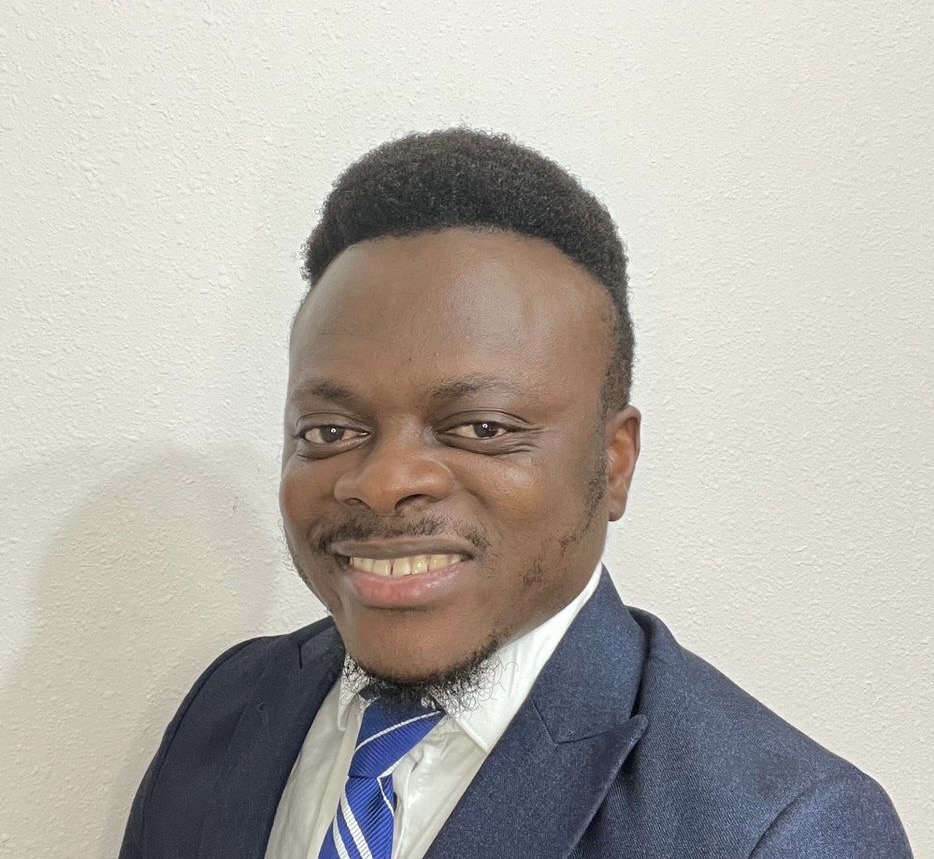Kingsley Tochukwu Amatanweze, a Nigerian-born American based Researcher speaks on his recent work which he hopes to use to develop the automobile industry. He also speaks on how the research can help to address climate change through reduction of carbon emissions in vehicles. COLLINS NNABUIFE brings excerpts.
Can you tell us about your educational background?
I completed my secondary education at Army Day Secondary School, Awkunanaw, Enugu and obtained my Bachelor of Engineering degree in metallurgical and materials engineering from the University of Nigeria, Nsukka. Currently, I am pursuing a PhD program in materials science and engineering at Missouri University of Science and Technology, Rolla, USA.
Before going for advanced studies, what were you doing after graduating from your bachelor’s program?
Upon graduation from the University of Nigeria, and before my national service, I ventured into education consulting services, where I conducted after-school classes and summer lessons for families in high class locations in Enugu, teaching and mentoring students in subjects such as mathematics, physics, chemistry, etc. It was a way of contributing to the science community, helping to nurture future professionals for the field. I continued after my national service and even got a job with as a school while combining it with my private educational consulting business. I was well sought after that I got more contracts than I could handle, which made me start outsourcing some of the jobs. Some of my students are now in the university, while one is already doing a master’s in biomedical sciences in the UK.
What made you go back for post-graduate studies?
I decided to go back to my engineering field, and this motivated me to go for advanced studies abroad where I could acquire expertise by being involved in hands-on cutting-edge research, utilizing contemporary large scale research facilities, to make me very resourceful and competitive in the field. And this become a reality after I got a fully funded admission in the United States, where I am currently completing my PhD in Materials Science and Engineering at the Missouri University of Science and Technology.
Can you tell us about your PhD research?
My research focuses on alloy development, specifically optimizing processing and mechanical properties performance of Ultra-high strength steel castings. Let me explain what are ultra-high strength steels (UHSS). First of all, when the tensile strength of the steel exceeds 440Mpa, it is referred to as an advanced high strength steel (AHSS). But when the tensile strength exceeds a minimum of 780Mpa, it is then referred to as ultra-high strength steel (UHSS). Though some companies set as high as 1300 Mpa as their minimum tensile strength for UHSS. This area of research is key to innovations in the automobile, manufacturing, energy, and mining industries. To improve the processing and mechanical properties of the steel, I focus on optimizing the secondary steel making processes via induction melting, investigating the effect of deoxidation practices and mold/gating designs on inclusion formations, and understanding the effects of section sizes of the casting to various solidification phenomena, and designing effective heat treatment processes to achieve enhanced mechanical properties’ performance in a Ni-Cr-Mo-V steel castings. Advanced high-strength steels (AHSSs) are new-generation steel grades which preserve the high formability needed for manufacturing while offering much more strength and other desirable qualities than other materials. With AHSSs, engineers can meet requirements for manufacturability, efficiency, low cost, safety, and durability. They are critical materials in the automotive industry and are very essential for vehicle mass reduction which brings down the emissions in vehicles.
My second research focuses on intensive quenching to produce high performance cast parts. Here I study the effect of different quench systems on quench defects and how intensive quench technologies could be utilized on difficult-to-quench castings sizes and chemistries with medium carbon equivalence, complex geometries, and surface defects to minimize quench distortion and prevent quench cracks. Quench cracking and distortion are critical issues in heat treatment optimization. They contribute significantly to the overall cost of production in heat treatment industries. For instance, costs associated with distortion in the global bearing industry are around $1 billion. On the other hand, distortion can result in a 20–40% increase in manufacturing costs through extra machining. Altogether, cracking and distortion lead to an increase in energy consumption and scraping, and a decrease in casting yield. The remelting and pouring of more metal to make up for the rejected components with quench defects, also results in increased environmental emissions. Hence, with intensive quench technologies, complex castings with varying section thickness undergo immediate and uniform martensite transformation over the entire part surface, minimizing tensile stress due to nonuniform transformation and cooling, resulting in surface compressive stress. This surface compressive residual stress reduces distortion, improves mechanical properties, and enhances fatigue/service life.
I consider myself privileged working on these research projects due to research skills and the experience I have acquired from operating and troubleshooting Hi-tech equipment and the ability to accurately analyze data generated with them. So far, I have been able to develop six research articles: one is already published in a peer reviewed journal, one accepted for a peer-reviewed conference proceeding, while five others are still under review. I would say that my research has been successful as my first published research article won the ASM Best Student Paper Award 2024. And this was the first time someone from my school had won the award since the award was established in 1985.
What other things are you involved in outside researching?
Apart from the exciting research opportunity, the past four years have been eventful. In 2023, I was elected the president of International Student Club in my school. Also in 2023, I was one of the three students nominated globally to serve a year term as student board members of the ASM International Board of Trustees. This development was welcomed with excitement by my school as this was also the first time a student from the school had been nominated into the board of prestigious organization. I was also the first African to be nominated as a student board member. The ASM International is the leading society for materials scientists and engineers globally. And back in Nigeria, for the past two years, I have been organizing my peers in an intervention project for my high school in Enugu, Army Day secondary School, Awkunanaw, Enugu. We were motivated to start the project as a way of making learning fun and excellence attractive for the students at the school. So far, the project has been able to sponsor over 30 academic and non-academic prizes for two years in a row, and an intra-school debate championship that is currently in its second edition. We have been able to get a few other gadgets for the school. As an alumnus of the school, I am happy we could give the students a better learning experience we never had, and the impacts have been enormous.
People appear to be losing interest in choosing metallurgical and materials engineering as a career path. What do you think could be the cause?
It’s simple. I think the field is not that popular like other common engineering disciplines that are household names like mechanical, electrical and civil, even in the United States. But programs like materials camp, where school children are introduced to the field of materials science and engineering, organized by the ASM Education Foundation, are doing a lot in that area of career education. Through this camp, many young people have gone ahead to pursue careers in material science and engineering because of the interesting things they learnt from the camps which made them develop interests in the field.Hence, the dearth of interest in the field is more of a thing of lack of knowledge of the field. Some young people choose courses they wouldn’t have gone for if they knew better about the course. It’s an issue of knowledge gap. And even my department here in the US is doing a lot in organizing demonstration sessions for school children and even college students who wish to learn about the program. I have seen several undergraduate students changing from mechanical engineering and other engineering courses to metallurgical engineering after finding out the field aligns more with their career interests. Surprisingly, I rarely see undergraduate students in my program who changed to a different department. This cannot be said about the program in Nigeria where many of the undergraduate students wish to crossover to other departments, and it is still an issue of knowledge gap. So, the respective professional societies in Nigeria need to do better about marketing the profession to young people.
This calls for a robust and effective career education in schools so children don’t just make uninformed decisions and join professions based off herd mentality. Children and families need to learn that careers are metamorphosing, and new careers and courses are being introduced every day to cater to the ever-evolving needs humans and plethora of contemporary challenges facing the world. They also need to understand how and where different career cross paths. We don’t have to get stuck with the old popular careers; the world has gone past that era.
Would you be willing to contribute to Nigeria with the expertise you have acquired, especially to the steel sector?
If the environment is enabling and the government is honest with their objectives, why not? I would be very willing. Unfortunately, the steel sector in Nigeria has been too politicized. As a member of the Nigerian Metallurgical Society, I have heard countless sad stories of the Ajaokuta Steel Company that it already sounds like a broken record. It’s a shame all these are happening even as the country has serious unemployment problem it can significantly address with an optimally productive steel sector. There no gainsaying the fact that the steel sector is still one of the highest employers of labor directly and indirectly the world over and has continued to drive industrialization. It’s even more sad that even with the abundant deposits of iron ores in the country, the Ajeokuta Steel Company in all its capacity is still unproductive.
As an expert in the field of materials science and engineering, especially steel research and development, what recommendation would you give to the Nigerian government on steel production?
I would recommend that the government get rid of the corruption in the steel sector by declaring a state of emergency in the appropriate ministry and ensuring that only technocrats with proven track records man critical positions in the sector. Secondly, there should be generous funding for research, especially the graduate research done in the universities. The universities should be equipped with large scale research facilities to enable the execution of edge-cutting research that can drive technological development in the sector. The development of the steel sector is highly dependent on the quality and level of research and robust production activities going on in the sector. There should be a healthy synergy between the industries and the research institutions, especially universities; where the industries can support research activities with fundings and the universities can proffer solutions to industry problems. Finally, the federal government may consider handing over the Ajaokuta Steel Complex and other public steel plants to private entities that have the capacity to get them operational to full scale.
WATCH TOP VIDEOS FROM NIGERIAN TRIBUNE TV
- Let’s Talk About SELF-AWARENESS
- Is Your Confidence Mistaken for Pride? Let’s talk about it
- Is Etiquette About Perfection…Or Just Not Being Rude?
- Top Psychologist Reveal 3 Signs You’re Struggling With Imposter Syndrome
- Do You Pick Up Work-Related Calls at Midnight or Never? Let’s Talk About Boundaries







